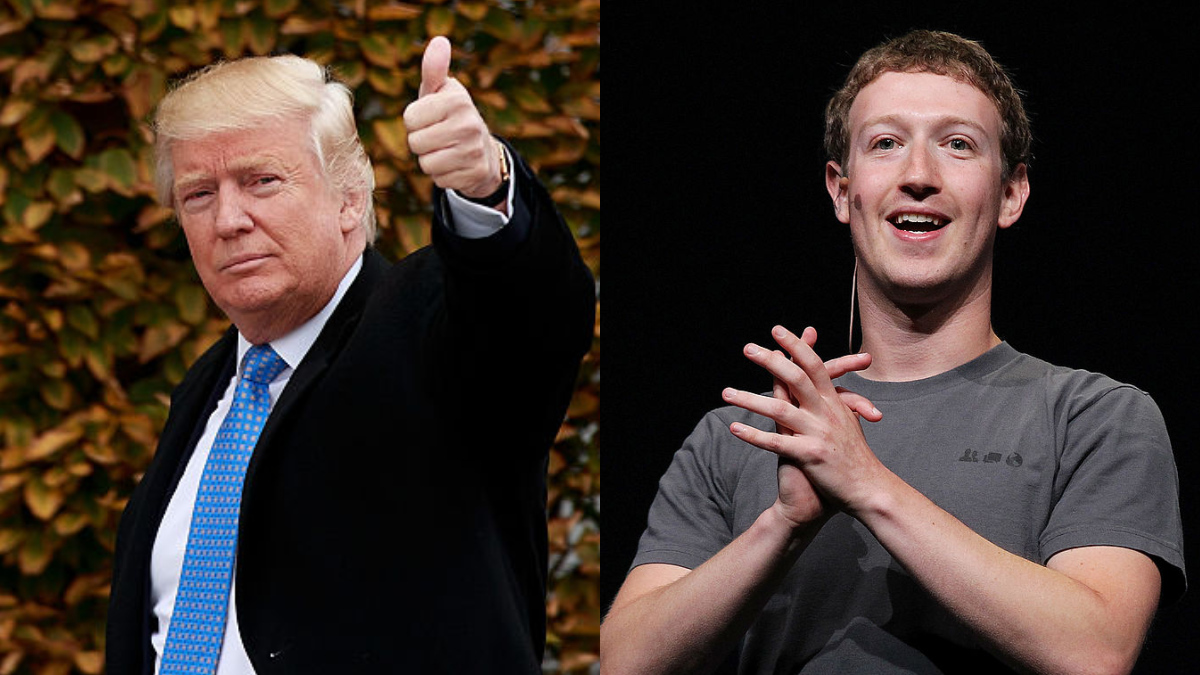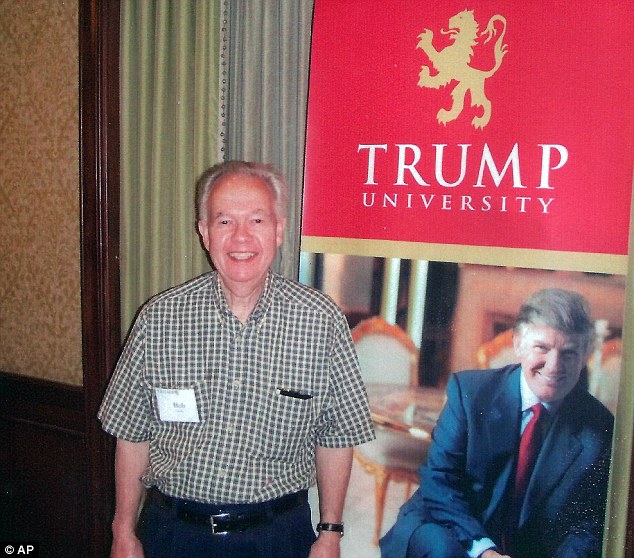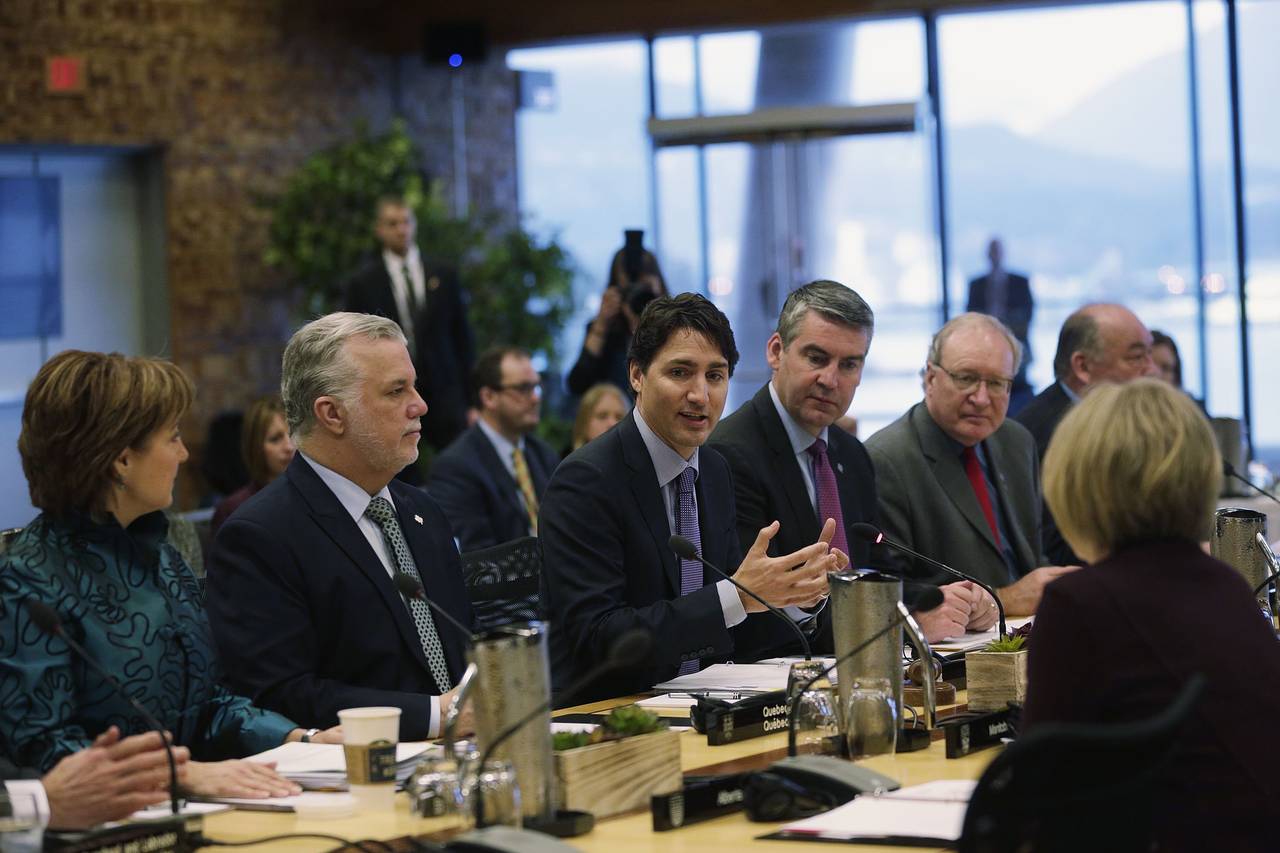Mark Zuckerberg's Challenges In A Trumpian America

Table of Contents
The Rise of Misinformation and Political Polarization
The 2016 US presidential election exposed the vulnerability of social media platforms to misinformation and disinformation campaigns. Facebook, as the dominant social network, played a significant role in the spread of fake news, impacting the electoral process and exacerbating political polarization.
Facebook's Role in Spreading Misinformation During the 2016 Election and Beyond
- Russian interference: The Mueller Report detailed extensive Russian efforts to spread disinformation on Facebook, aiming to sow discord and influence the election outcome.
- Cambridge Analytica scandal: The misuse of user data by Cambridge Analytica further eroded public trust in Facebook's ability to protect user information and prevent malicious actors from exploiting its platform.
- Amplification of extremist views: Facebook's algorithms, designed to maximize engagement, inadvertently amplified the reach of extremist groups and conspiracy theories, contributing to the spread of harmful content.
- Slow response to misinformation: Critics argue that Facebook's initial response to the spread of misinformation was too slow and inadequate, allowing harmful narratives to spread unchecked.
The Challenge of Content Moderation and Balancing Free Speech with the Need to Combat Harmful Content
The ongoing debate surrounding content moderation on social media platforms highlights the inherent tension between protecting free speech and combating the spread of harmful content. Facebook faces immense pressure to effectively moderate its content without being perceived as censoring legitimate viewpoints.
- Defining "harmful content": Determining what constitutes harmful content—hate speech, misinformation, violence—is a complex and subjective process.
- Algorithm bias: Concerns exist that Facebook's algorithms may inadvertently discriminate against certain viewpoints or communities.
- The scale of the problem: The sheer volume of content posted on Facebook daily makes effective content moderation a daunting task.
- Global implications: The challenge of content moderation is further complicated by the global reach of Facebook, requiring navigation of varying cultural norms and legal frameworks.
Government Regulation and Antitrust Scrutiny
Mark Zuckerberg's challenges extend beyond content moderation to encompass increasing government regulation and antitrust scrutiny. Big Tech companies, including Facebook, are facing unprecedented levels of regulatory oversight.
Increasing Government Regulation Targeting Big Tech Companies, Including Facebook
- Data privacy regulations: The implementation of GDPR in Europe and similar regulations worldwide have significantly increased the cost and complexity of operating social media platforms.
- Antitrust lawsuits: Facebook faces multiple antitrust lawsuits alleging monopolistic practices and anti-competitive behavior.
- Investigations into Facebook's business practices: Government agencies in the US and Europe are conducting extensive investigations into Facebook's data collection practices, advertising business model, and market dominance.
The Implications of Potential Breakups or Significant Structural Changes to Facebook
The potential breakup of Facebook or other significant structural changes could have profound implications for the company, its users, and the broader tech industry.
- Impact on market competition: A breakup could lead to increased competition, potentially benefiting consumers through lower prices and more innovative products.
- Impact on innovation: Conversely, a breakup could stifle innovation if smaller, independent entities lack the resources and scale to compete effectively.
- Impact on user experience: Significant structural changes could disrupt the user experience, potentially leading to fragmentation of social networks.
Erosion of Public Trust and the Impact on Facebook's Brand
The events of the past few years have significantly eroded public trust in social media platforms, particularly Facebook. This decline in trust has had a substantial impact on Facebook's brand reputation.
The Decline in Public Trust in Social Media Platforms and the Resulting Reputational Damage for Facebook
- Negative media coverage: Facebook has faced extensive negative media coverage related to misinformation, data privacy concerns, and its role in political polarization.
- Declining user engagement: Some users are actively reducing their time on Facebook or deleting their accounts altogether in response to privacy concerns and the spread of misinformation.
- Decreased advertiser confidence: Advertisers are becoming increasingly cautious about associating their brands with Facebook due to concerns about brand safety and the platform's role in spreading harmful content.
Strategies to Regain Public Trust and Address Concerns About Privacy, Data Security, and Misinformation
Facebook has implemented various strategies to address concerns about privacy, data security, and misinformation, aiming to regain public trust.
- Improved content moderation: Facebook has invested heavily in artificial intelligence and human moderators to identify and remove harmful content.
- Increased transparency: The company has made efforts to increase transparency regarding its algorithms and data collection practices.
- Data protection initiatives: Facebook has implemented new data security measures to protect user information from unauthorized access.
- Fact-checking partnerships: Facebook collaborates with independent fact-checkers to identify and label false or misleading information.
However, the effectiveness of these strategies remains a subject of debate.
Conclusion
Mark Zuckerberg's challenges in a Trumpian America are multi-faceted and far-reaching. From battling the spread of misinformation and navigating the complexities of content moderation to facing intense government regulation and grappling with declining public trust, the CEO of Facebook faces a daunting task. The long-term implications of these challenges are significant, impacting not only Facebook’s future but also the broader digital landscape. Understanding Mark Zuckerberg's ongoing challenges in navigating this complex political landscape is crucial to shaping a more responsible and accountable digital future. We encourage you to engage further with this topic through online discussions and further research into the evolving relationship between Big Tech, politics, and public trust.

Featured Posts
-
 Ohio Doctors Parole Hearing Sons Struggle 36 Years After Mothers Murder
Apr 29, 2025
Ohio Doctors Parole Hearing Sons Struggle 36 Years After Mothers Murder
Apr 29, 2025 -
 Exclusive University Group Defies Trump Administration Policies
Apr 29, 2025
Exclusive University Group Defies Trump Administration Policies
Apr 29, 2025 -
 Impact Of Xs Debt Sale Analyzing The Newly Released Financial Data
Apr 29, 2025
Impact Of Xs Debt Sale Analyzing The Newly Released Financial Data
Apr 29, 2025 -
 Us Trade Threats Loom Large Over Canadian Election
Apr 29, 2025
Us Trade Threats Loom Large Over Canadian Election
Apr 29, 2025 -
 Macario Martinezs Transformative Journey A National Sensation
Apr 29, 2025
Macario Martinezs Transformative Journey A National Sensation
Apr 29, 2025
Latest Posts
-
 Nyt Spelling Bee February 28 2025 Solutions And Spangram
Apr 29, 2025
Nyt Spelling Bee February 28 2025 Solutions And Spangram
Apr 29, 2025 -
 Nyt Spelling Bee Answers For February 25 2025 Find The Pangram
Apr 29, 2025
Nyt Spelling Bee Answers For February 25 2025 Find The Pangram
Apr 29, 2025 -
 Todays Nyt Spelling Bee Hints And Answers For Puzzle 360 Feb 26th
Apr 29, 2025
Todays Nyt Spelling Bee Hints And Answers For Puzzle 360 Feb 26th
Apr 29, 2025 -
 Solving The Nyt Spelling Bee February 25 2025 Puzzle And Spangram
Apr 29, 2025
Solving The Nyt Spelling Bee February 25 2025 Puzzle And Spangram
Apr 29, 2025 -
 Nyt Strands Hints And Answers Monday March 31 Game 393
Apr 29, 2025
Nyt Strands Hints And Answers Monday March 31 Game 393
Apr 29, 2025
